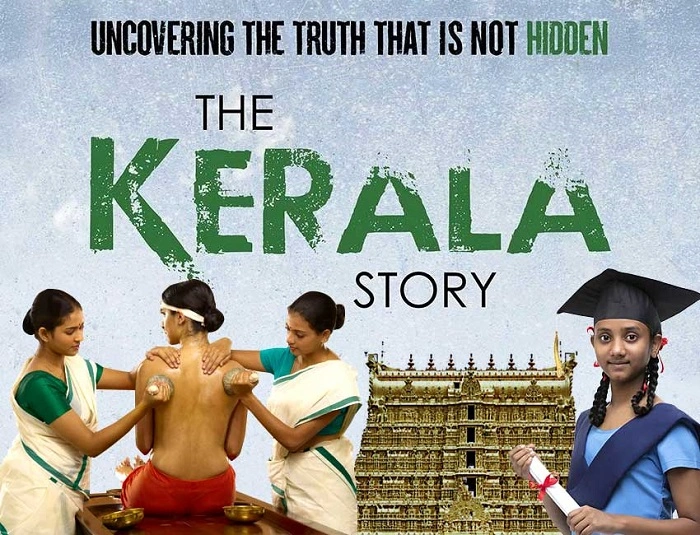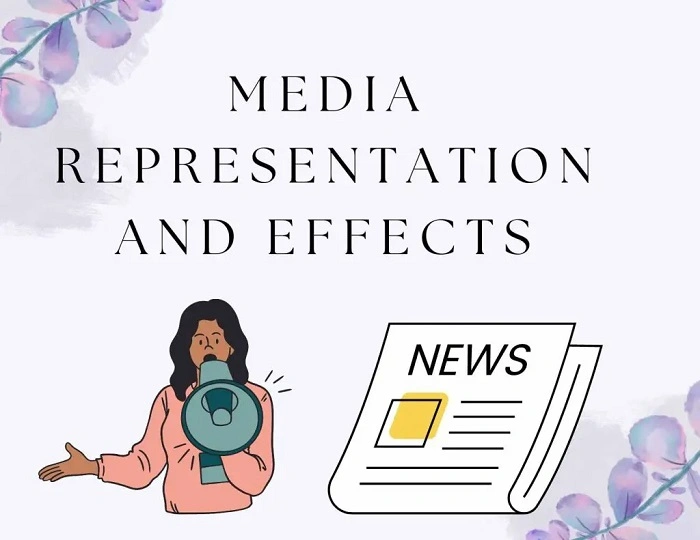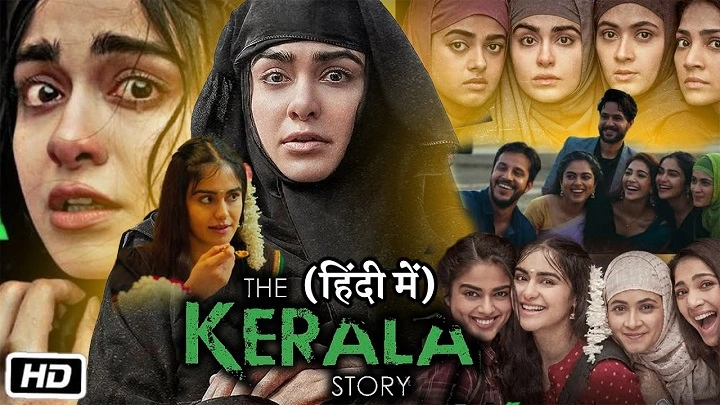The Kerala Story has become a significant topic of discussion in recent times, garnering both attention and controversy. This article aims to explore the events, themes, and implications behind the story, as well as its impact on contemporary discussions. In this context, the article will be presented in Hindi to connect more deeply with audiences in India and provide a clearer perspective on its meaning, historical background, and the ongoing discourse surrounding it.
The Genesis of the Kerala Story

The Kerala Story is a controversial narrative that involves complex social, religious, and political issues. The story is based on the real-life experiences of several women from Kerala who were allegedly lured into joining extremist organizations. These women, according to the story, were radicalized and forced to abandon their families, religion, and society. The focus of the narrative is primarily on the journey of these women as they are manipulated and transformed, with the story aiming to shed light on the darker side of forced conversions and religious extremism.
The Roots of the Story
The Kerala Story traces its roots to incidents in Kerala, one of the most progressive and socially developed states in India. Despite its progressive status, Kerala became the backdrop for stories of manipulation, coercion, and the exploitation of vulnerable women. The story emerged as a reflection of real-life events, and the media attention it gained sparked a heated debate.
The most critical aspect of this narrative is the claim that women were manipulated into joining terrorist organizations under false pretenses. While these claims have been disputed, the emotional weight of the story and the voices of the affected families have contributed to its widespread coverage.
Unveiling the Impact on Society
The impact of the Kerala Story extends far beyond the personal narratives it describes. The public response, often polarized, has brought to light several societal issues such as religious intolerance, the exploitation of women, and the consequences of radical ideologies. The story raises critical questions about the vulnerability of certain sections of society, the role of education, and the influence of extremist ideologies on the youth.
Religious Polarization
One of the main themes of the Kerala Story is religious polarization, which has been a significant issue in India for many years. The narrative explores how religious differences are often used to manipulate individuals, especially women, for political or ideological purposes. The emotional and psychological manipulation of these women challenges the concept of personal choice and freedom, leading to intense debates on religious conversion and the role of the state in controlling such practices.
The Role of Women in Extremism
The Kerala Story highlights the vulnerable position of women in certain sections of society. Women are often seen as easy targets for radical elements looking to manipulate them into joining extremist organizations. In these situations, the women’s autonomy and free will are stripped away, making them victims of a larger political and ideological agenda. This aspect of the story forces society to confront uncomfortable truths about gender dynamics, vulnerability, and the need for safeguarding women’s rights and freedoms.
Media Representation and Public Reaction

The Kerala Story gained significant attention through media outlets, both national and international. The representation of these events in the media, however, has been a topic of considerable debate. Some argue that the media sensationalized the issue to fuel public outrage and push political agendas. Others believe that the story sheds much-needed light on a dark chapter of modern India’s history.
Controversy in the Narrative
As with any sensitive issue, there are varied interpretations of the Kerala Story. Some critics argue that the story is overly dramatic and might exaggerate the events to stir up controversy. They claim that the media’s portrayal of the story could be biased, sensationalized, and politically motivated. However, others defend the narrative, suggesting that it brings to the forefront the serious issue of radicalization and the exploitation of women for extremist causes.
Political Implications
The Kerala Story is not just a social issue but also a political one. The narrative has been adopted by various political groups to push their agendas. For some, it is an example of the threat posed by religious extremism in India, while others see it as a tool used by their opponents to create division. The story has become a part of the larger discourse on communalism, terrorism, and the role of the state in preventing such occurrences.
The Emotional and Social Toll
The Kerala Story is more than just a series of events; it is a poignant reflection on the emotional and social toll of radicalization. It reminds us of the devastating effects that extremist ideologies can have on families, communities, and individuals.
Impact on Families
For the families of the affected women, the Kerala Story represents a tragedy that is both personal and societal. Parents and relatives are left to grapple with the loss of their loved ones, who have been taken away under the guise of religious conversion. These families face a profound sense of grief and helplessness, unable to undo the manipulation their daughters or sisters experienced. Their emotional pain is compounded by the larger societal debate that often ignores their trauma in favor of political or ideological discourse.
Psychological Effects on Women
For the women who have been caught in the narrative of the Kerala Story, the psychological toll is immense. Many of them were subjected to extreme coercion, emotional abuse, and isolation. The trauma they faced during and after their radicalization can leave long-lasting scars, affecting their mental health, self-identity, and relationships.
Conclusion
The Kerala Story in Hindi has ignited important conversations about the vulnerability of individuals to extremist ideologies, the impact of religious polarization, and the exploitation of women. While it is crucial to critically examine the accuracy of the narrative, the emotions and real-life experiences it evokes cannot be ignored. The story is a powerful reminder of the complex issues facing modern India, including radicalization, gender inequality, and the need for societal awareness.
As we continue to engage in discussions about the Kerala Story, it is essential to remember the human cost of these events. For the affected individuals and families, the story is not just a political narrative—it is their painful reality.
FAQs
What is the Kerala Story about?
A1: The Kerala Story revolves around the alleged radicalization of women in Kerala, with claims that they were lured into joining extremist organizations.
Why is the Kerala Story controversial?
A2: The controversy stems from differing opinions on its portrayal in the media, with some questioning its accuracy and others defending its significance in addressing issues of radicalization.
How does the Kerala Story highlight the issue of religious extremism?
A3: The Kerala Story sheds light on how religious extremism can manipulate vulnerable individuals, particularly women, and the role of radical ideologies in shaping their choices.
What is the impact of the Kerala Story on families?
A4: The emotional toll on families is immense, as they experience the loss of their loved ones to radicalization and often face social ostracism as a result.
What are the social and psychological effects on women in the Kerala Story?
A5: Women affected by the Kerala Story often face severe psychological trauma, including emotional abuse, coercion, and isolation, leading to long-lasting mental health issues.

